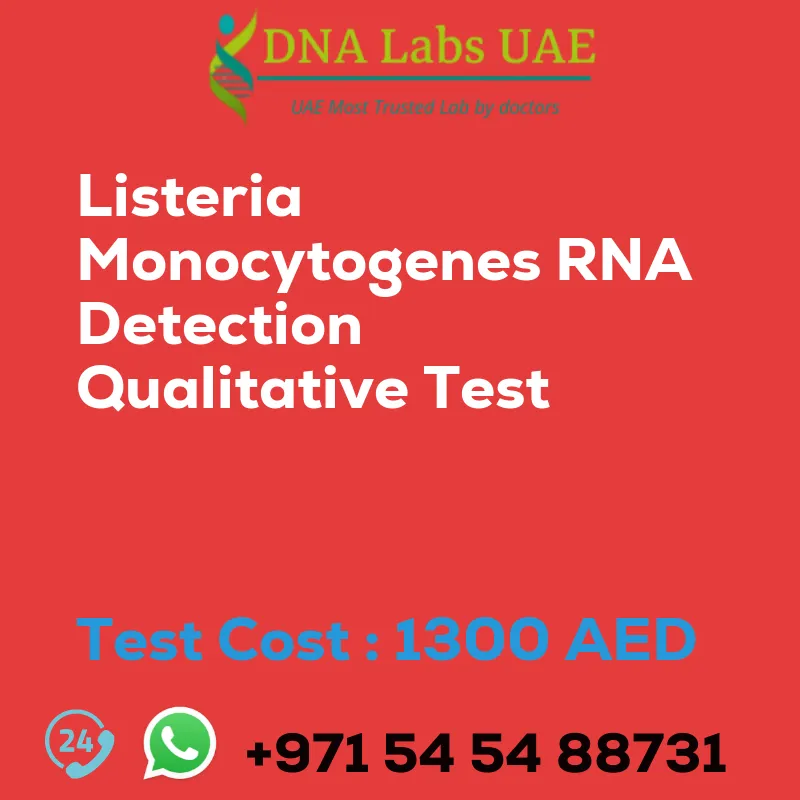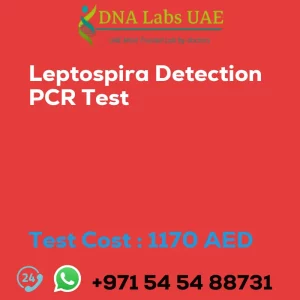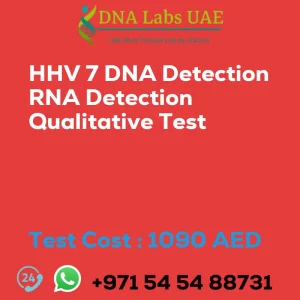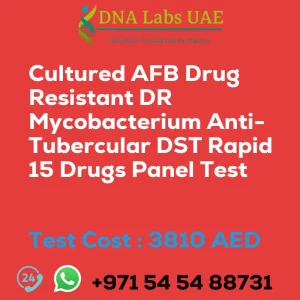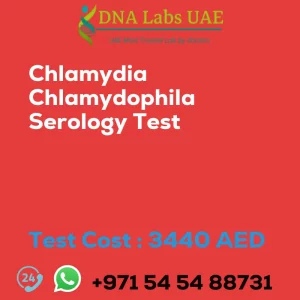Listeria Monocytogenes RNA Detection Qualitative Test
Cost: AED 1300.0
Test Name: Listeria Monocytogenes RNA Detection Qualitative Test
Components: Synovial Fluid, CSF, serum, mail, Animal meat, Amniotic Fluid, Faecal Blood, rectal swab
Report Delivery: 3rd Working Day Email: 36 hours, On phone: 24 hours
Method: Real Time PCR
Test Type: Viral
Doctor: Physician
Test Department: Genetics
Pre Test Information: Need to sign Consent document and bring any clinical history of patient for Listeria Monocytogenes (RNA Detection) Qualitative Test
Test Details
The Listeria monocytogenes (RNA Detection) qualitative test is a laboratory test used to detect the presence of Listeria monocytogenes RNA in a sample. Listeria monocytogenes is a bacterium that can cause serious illness in humans, particularly in individuals with weakened immune systems, pregnant women, and newborns.
The test involves collecting a sample from a suspected source, such as food, water, or a clinical specimen, and extracting the RNA from the sample. The RNA is then converted into complementary DNA (cDNA) using reverse transcription. The cDNA is amplified using a technique called polymerase chain reaction (PCR), which allows for the detection of even small amounts of Listeria monocytogenes RNA.
The PCR amplification is typically performed using specific primers that target conserved regions of the Listeria monocytogenes RNA. If the target RNA is present in the sample, it will be amplified, and the presence of the amplified product can be detected using various methods, such as gel electrophoresis or fluorescent probes.
A positive result indicates the presence of Listeria monocytogenes RNA in the sample, suggesting a potential contamination or infection. This information can be used to take appropriate measures to prevent the spread of the bacterium and protect public health. A negative result, on the other hand, suggests the absence of Listeria monocytogenes RNA in the sample.
It is important to note that the Listeria monocytogenes (RNA Detection) qualitative test is a laboratory-based test and requires specialized equipment and expertise to perform. It is typically performed in reference laboratories or by trained professionals in healthcare or food safety settings.
| Test Name | Listeria Monocytogenes RNA Detection Qualitative Test |
|---|---|
| Components | |
| Price | 1300.0 AED |
| Sample Condition | Synovial Fluid, CSF, serum, mail, Animal meat, Amniotic Fluid, Faecal Blood, rectal swab |
| Report Delivery | 3rd Working Day Email:-36 hours.On phone: 24 hours |
| Method | Real Time PCR |
| Test type | Viral |
| Doctor | Physician |
| Test Department: | Genetics |
| Pre Test Information | Need to sign Consent document and bring any clinical history of patient forListeria Monocytogenes (RNA Detection) QualitativeTest |
| Test Details |
The Listeria monocytogenes (RNA Detection) qualitative test is a laboratory test used to detect the presence of Listeria monocytogenes RNA in a sample. Listeria monocytogenes is a bacterium that can cause serious illness in humans, particularly in individuals with weakened immune systems, pregnant women, and newborns. The test involves collecting a sample from a suspected source, such as food, water, or a clinical specimen, and extracting the RNA from the sample. The RNA is then converted into complementary DNA (cDNA) using reverse transcription. The cDNA is amplified using a technique called polymerase chain reaction (PCR), which allows for the detection of even small amounts of Listeria monocytogenes RNA. The PCR amplification is typically performed using specific primers that target conserved regions of the Listeria monocytogenes RNA. If the target RNA is present in the sample, it will be amplified, and the presence of the amplified product can be detected using various methods, such as gel electrophoresis or fluorescent probes. A positive result indicates the presence of Listeria monocytogenes RNA in the sample, suggesting a potential contamination or infection. This information can be used to take appropriate measures to prevent the spread of the bacterium and protect public health. A negative result, on the other hand, suggests the absence of Listeria monocytogenes RNA in the sample. It is important to note that the Listeria monocytogenes (RNA Detection) qualitative test is a laboratory-based test and requires specialized equipment and expertise to perform. It is typically performed in reference laboratories or by trained professionals in healthcare or food safety settings. |

